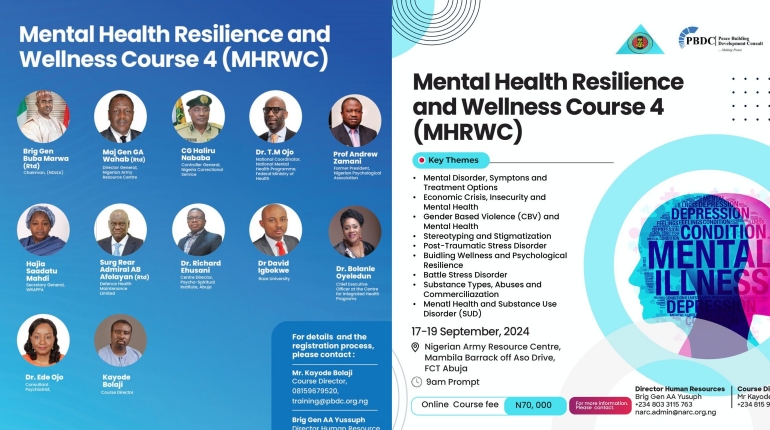
MENTAL HEALTH RESILIENCE AND WELLNESS COURSE 4
In a 2019 survey conducted by the Africa Polling Institute (API) and EpiAFRIC, it was revealed that 20%-30% of the Nigerian population is affected by mental disorders, contributing to diminished productivity and well-being.
The inability to physically identify certain mental health issues, combined with the high cost of living in Nigeria aggravated by escalating inflation and exchange rates, has led to see heightened levels of anger, anxiety, stress, and depression. resulting in amplified mental and physical health challenges, decreased quality of life, and impaired ability to carry out daily activities amongst our agencies.
To tackle this issue, the Nigerian Army Resource Centre, the Peace Building Development Consult, and other relevant stakeholders are collaborating to organize the Mental Health Resilience and Wellness Course (MHRWC) 4. The primary objective of the course is to elevate awareness about mental health and wellness in Nigeria. It seeks to provide participants with the expertise to recognize psychosocial trauma and well-being within a dynamic peace-building framework, address the root causes of traumatic events at an individual and group level, and deliver appropriate responses. Furthermore, the course is designed to tailor learning experiences to meet the specific personal and professional needs of participants.


